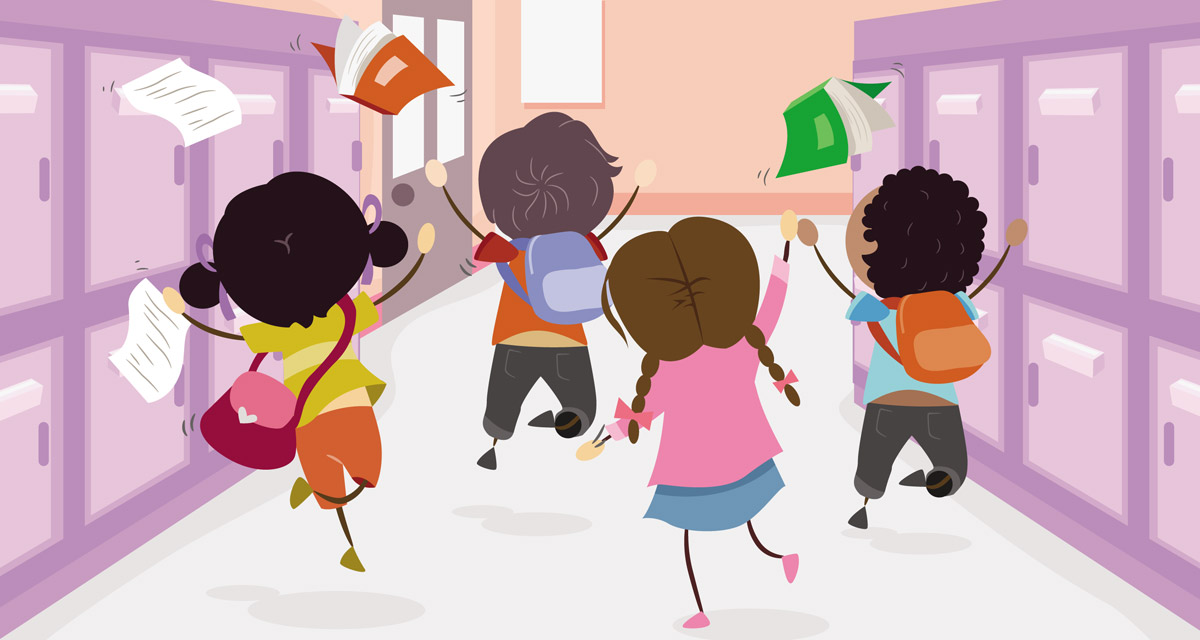The race to the circled calendar day in June labeled “The Last Day of School” is defined with one dreamy-eyed thought, “The start of summer vacation!” Prior to that final day, though, there are a number of tasks that still require attention, and answers from both students and parents. Ending the year on a positive note will certainly help everyone in the educational triangle, including teachers, start thinking of the new school year.
Grades Define Your Work Ethic
Statistically, the first and third marking periods often reflect the highest levels of achievement for students. The second marking period is met with new challenges in organization and time management and new material, while the final grading period is defined by motivation levels. No matter what the month, every assignment bearing a name reflects a defined quality of work. While it’s common for students to feel their enthusiasm waning, it is important to find new ways to boost energy levels. This may mean shorter work sessions, and more breaks or time to enjoy the outdoors.
Celebrate Your Accomplishments
One way to count the days down to the end of the year is to make a list of accomplishments, whether on notebook paper or on a “word” document file on your laptop. Consider the following areas:
- Organization: Could you find dated notes, or previous tests or quizzes? Were the correct books brought home each evening?
- Time Management: Have distractions at school and home improved your ability to complete assignments?
- Maintaining a Homework Journal: Did you write down assignments, and cross off completed tasks? Were long-term assignments started early, or tackled just prior to the deadline?
- Participation: Did you participate in class discussions?
- Frustration level: In what areas did you see the greatest improvement? How often were you frustrated about homework, classwork, or various forms of assessments? How did you build confidence levels?
- Academics: What worked this year? What are your strengths? How could you improve your weaknesses? Was there a class that began as a challenge, but became easier?
- Extracurricular Activities: How well did you balance your afterschool activities, sports, musical, or artistic commitments?
- Balance Home, School, Friendships: Balancing school responsibilities with the need to spend time with family and friends can be challenging. What worked well for you? (Don’t forget to factor in your sleep schedule.) What would be helpful next year?
- New Strengths: What aspects about the year surprised you? What did you do to improve as a student?
As you think about ways you improved, also think about how you could strengthen your weaknesses.
One Important Question for the Teacher
Your child has spent the year improving her writing and comprehension skills, reading for endurance, expanding mathematical understanding, listening and proving understanding. These skills were constantly emphasized throughout each week. Often, during the summer months, children cease to remember the essential information. Parents can help their children maintain an educational standard by continuing the educational process through fun and exciting ways. Send an e-mail to your child’s teacher and ask what skills require additional practice.
- No matter what the age of your child, encourage reading for pleasure. Visiting your town’s local library weekly will expand non-fiction interests and perhaps cause your child to delve into a new, high-interest series.
- Begin playing board or card games to boost key skills, such as computation, higher-level thinking, and strategizing.
- Every day create an educational activity, such as introducing a new word, subject, or asking for a program to be verbally summarized.
- For savvy kids, start sending her e-mails as a dialogue to learning.
- For creative children, encourage artistic forums such as painting, drawing, or illustrating a place, event, or an original story.
Summer is a great time to boost your child’s confidence and end-of-year educational levels. The goal is for children to enjoy learning while continuing to grow.
Saying Thank You!
Teachers always appreciate feedback, especially when the information explains why projects or assignments were a favorite, or how personal growth was viewed. Before the last day of school, parents and students should take time to send a hand-written note or e-mail. Ending the year on a good note also implies that parents can help teachers see the value in their efforts.




















